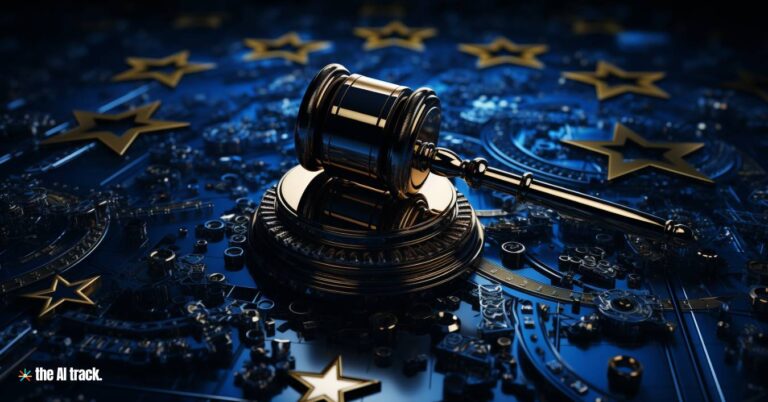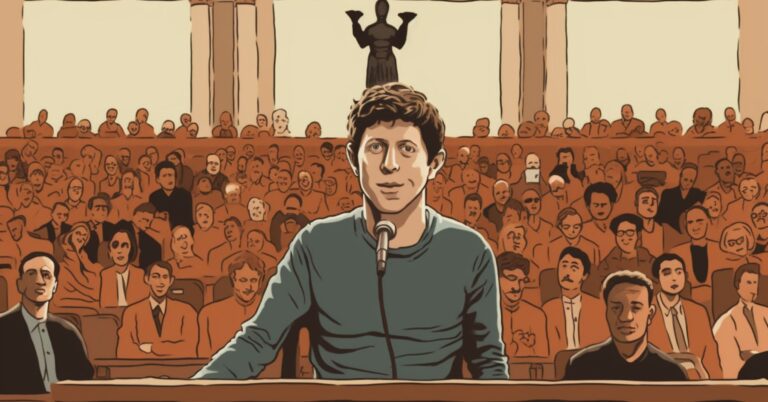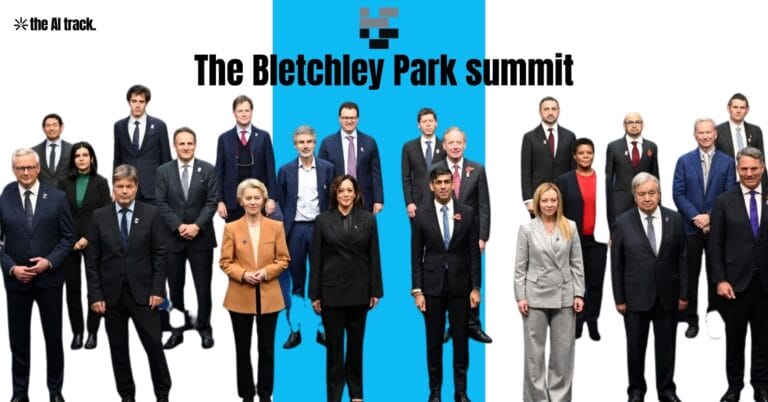Jump to Sections
Addressing the AI Existential Threat: Insights from Industry Experts
The Chorus of Concerns: AI as an Existential Threat
Imagine a world where the very technology we’ve created to advance society poses an existential threat to humanity itself. This chilling concept has been at the forefront of discussions among AI experts. They draw parallels between AI’s potential consequences and catastrophic events such as pandemics and nuclear warfare.
In May 2023, an open letter penned by dozens of industry experts sent shockwaves through the tech community. The letter, published by the Center for AI Safety (CAIS), warns that unchecked AI development could lead to a catastrophic extinction event. The CAIS, an advocacy group dedicated to reducing societal-scale risks from AI, compares the potential dangers of AI to deadly diseases and nuclear war.

Prominent Signatories: Sam Altman and the “Godfathers of AI”
Among the signatories of this alarming letter is Sam Altman, the CEO of OpenAI and a prominent figure in the AI landscape. Altman’s involvement underscores the gravity of the situation. He has oscillated between expressing his admiration for AI as “the greatest technology humanity has yet developed” and his deep concerns about its potential for harm.
The letter also bears the signatures of industry heavyweights like Dr. Geoffrey Hinton, Dr. Yoshua Bengio, and Dr. Yann LeCun, often referred to as the “godfathers of AI.” These computer scientists and professors have played pivotal roles in advancing deep learning, earning them the prestigious Turing Award in 2018 for their contributions to the field.
A Diverse Coalition: Beyond Industry Heavyweights
What sets this open letter apart is its diverse range of signatories. It’s not just AI experts expressing concern; the letter also bears the names of celebrities and public figures who recognize the gravity of the situation. For instance, the singer Grimes, known for her creative explorations in AI, and neuroscientist Sam Harris, a prominent podcaster, have added their voices to the call for AI regulation.
The Call for Regulation: Sam Altman’s Plea to Lawmakers
Sam Altman, in particular, has been actively advocating for increased regulation of the AI industry. He recently met with US President Biden and testified before the Senate Judiciary Committee, emphasizing the need for proactive steps to mitigate AI’s risks.
The Urgency of Global Attention: Mitigating AI’s Existential Risks
The open letter and concerns raised by industry leaders underscore the need for comprehensive global AI regulation. As AI rapidly advances, the risks of misuse or unintended consequences become clearer. Experts argue for a regulatory framework to ensure ethical AI development and deployment.
Meanwhile, the European Union is advancing towards implementing the AI Act, one of the first major global laws controlling AI use.
Implementing AI Safety Measures
A number of organizations are already working to develop and implement AI safety measures. The Center for AI Safety (CAIS) is a leading research organization working to ensure the safe and beneficial development of AI. CAIS and other organizations are developing AI safety techniques, ethical guidelines, and policies for responsible AI use across sectors.
Additional Data and Information
- According to a 2023 survey by McKinsey & Company, 85% of executives believe that AI will have a significant impact on their industry in the next five years. However, 66% of executives also express concerns about the potential risks of AI, such as job displacement and weaponization.
- A 2022 report by the World Economic Forum found that AI could create up to 95 million new jobs globally by 2025. However, the report also warns that AI could displace up to 85 million jobs during the same period.
- The United States, China, and the European Union are all developing national AI strategies and regulations. However, there is no international consensus on AI regulation, raising concerns about fragmentation and uneven implementation.
Conclusion
The concerns raised by industry leaders and experts highlight the urgency of comprehensive global AI regulation. As AI rapidly advances, we must ensure that it is developed and deployed safely and ethically. This requires collaboration among AI developers, policymakers, and other stakeholders to establish common standards and safeguards.
KEY TAKEAWAY
AI experts, including Sam Altman, warn of the existential risks posed by unchecked AI development, comparing these risks to pandemics and nuclear warfare. The call for increased regulation and global attention to mitigate these risks is becoming increasingly urgent.






